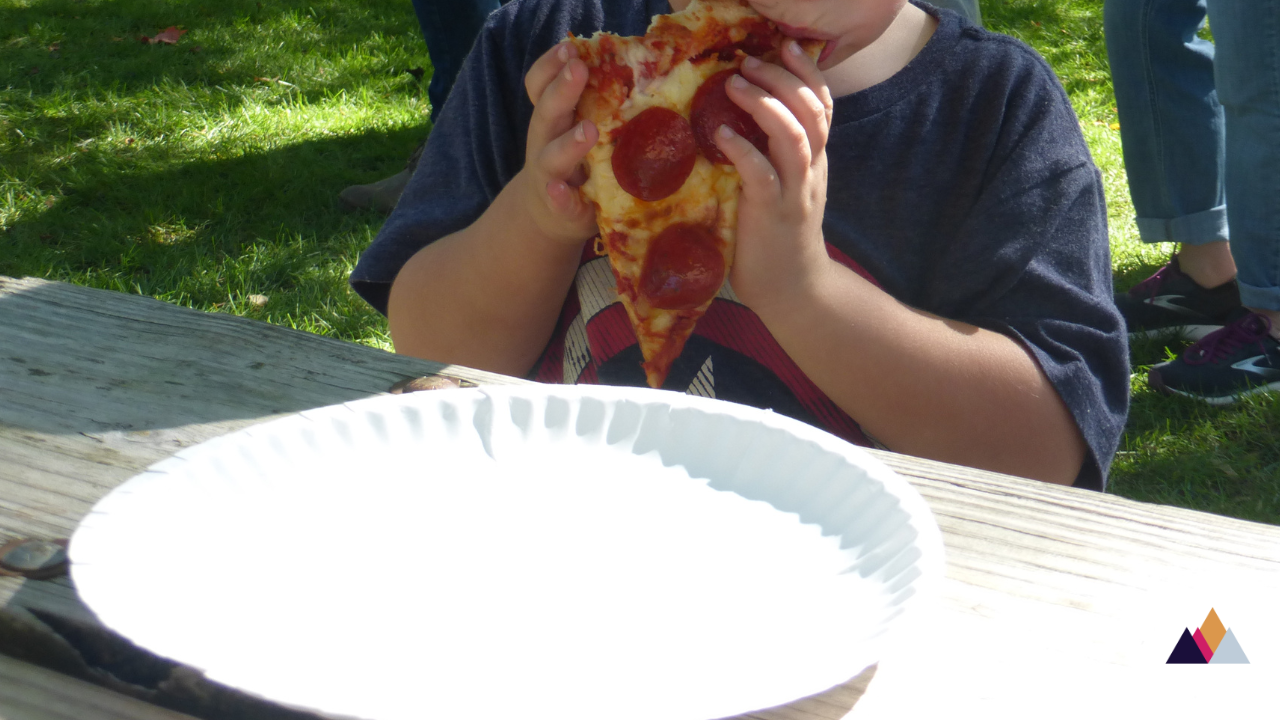|
Yesterday - on a prep-call for a podcast interview - I was asked about the unique challenges some PDA children face with eating, among them my son Cooper.
The woman interviewing me asked how I had first learned about PDA and I told her that years ago my son’s occupational therapist had mentioned it because Cooper’s response to gentle feeding therapy was different that the rest of her Sensory Processing Disorder clients.
His therapist would create a "sensory bridge" between, say, a Lay’s potato chip and a new type of chip – like a wavy potato chips made with avocado oil to expose him to a new flavor and texture - and Cooper would successfully bridge to eating the new chip and really love them. But what didn’t make sense to her through the sensory lens was that he would then drop the original chip entirely and refuse to eat them.
And in this way, he continued to hover at eating only around 3-4 foods - usually chips, popcorn and Pirate's Booty - never actually increasing his options.
But flash forward four years and now my son is eating steak, chicken, fried fish, apples, carrots, pizza, chocolate milk, lemons, buffalo wings (!), pancakes, french fries, and sometimes fruit smoothies (in addition to chips, Cheetos, Pirate's Booty and other less healthy things).
“So what changed?" the interviewer asked me. "How did he start eating again?”
“I let go of trying to make him eat,” I responded.
But even as the words came out of my mouth, I knew it sounded overly simple, even trite. Like those “Just Let Go” bumper stickers that make my eyes roll.
The question I always have when I see or hear that phrase is "But how do I actually do that?!"
Becasue what I know from the last four years is that it's not at all simple for a parent of a PDA child or teen to let go, in real life, on a daily basis. I didn't have time to go into all of it on the call, but there have been so many moments in recent years when my ability to let go was tested, (and many times I came up short).
Like the two years that I spent desperately worried my son would end up hospitalized or with a feeding tube becasue he practically only ate chips.
The time I found myself walking down the aisles of a grocery store, tears streaming down my face, panicked as I filled my cart with candy-flavored protein bars – Donut! Chocolate Brownie! – that I would bring him and he would reject entirely.
The time I tried to sneak protein and “tasteless” vitamin powders into his chocolate milk - the last “healthy” thing he would consume in the beginning of burnout - and the tightness that wrenched my chest when I realized he could taste the poweder and perceive my attempt at control, prompting him to stop drinking chocolate milk entirely (and not return to it for two whole years).
The fear I felt as a mother as I watched him throw up in the trash can because he stepped on one stray piece of cooked oatmeal that had fallen from his younger brother’s high chair, or that the smell of bananas would send him sprinting to another room while full-on gagging.
The times I found him hidden behind curtains or couches, surrounded by the wrappers from candy he had somehow found, and I had to fight the surge of anxiety in my body as I imagined my six-year-old sugar fiend becoming an adult plagued by addictions.
The clenched feeling in my jaw that I sometimes STILL get when I deliver Cooper a plate of cheetos for breakfast before school, knowing he hasn’t eaten any “healthy” food for a while.
I STILL have to remind myself, "It’s OK. We can trust this journey and pan out to the big picture and remember our progress. We always make progress when we are prioritizing felt safety, autonomy, and deep connection between us."
Letting go is not easy, or immediate, or even linear. It's messy.
It's a daily practice and the creation of a new baseline that we can come back to when we inevitably stray.
Letting go is remembering that at the very foundation of raising a PDA child or teen there is an uncomfortable truth: none of the “strategies” we employ (lowering demands, declarative language, etc.) are truly transformative over the long term unless the energy underneath them is one of acceptance and releasing some of our (perceived) control as parents.
But remembering this does not magically transform us into a buddha floating on a lotus flower, blissfully unperturbed by the mess, noise, chaos, and uncertainty of raising a PDA child or teen.
Rather, it means that when our jaw clenches as we deliver cheetos to the couch – our own noise-canceling headphones on to drown out the YouTube shorts blaring in the background – we don’t let the fear and frustration drive our behavior.
We don't revert back to the strategies and parenting styles that we know at our core don’t work for our family (when we are in our thinking brains and can access our logic and intuition!).
It means that when the thought pops up – how will my son manage as an adult if I am not here to deliver food? – we welcome it with compassion and let it pass through us without judgment.
And then we choose once again to deliver the cheetos in the present moment, even though we are scared of the future.
Doing this consistently takes four things:
Time.
Skills.
Practice.
Healing with - and belonging to - a community.
And these four elements are at the heart of our signature program, the Paradigm Shift Program™.
Sending you all love, support and endless grace as you make your way through the messiness of letting go!
|


